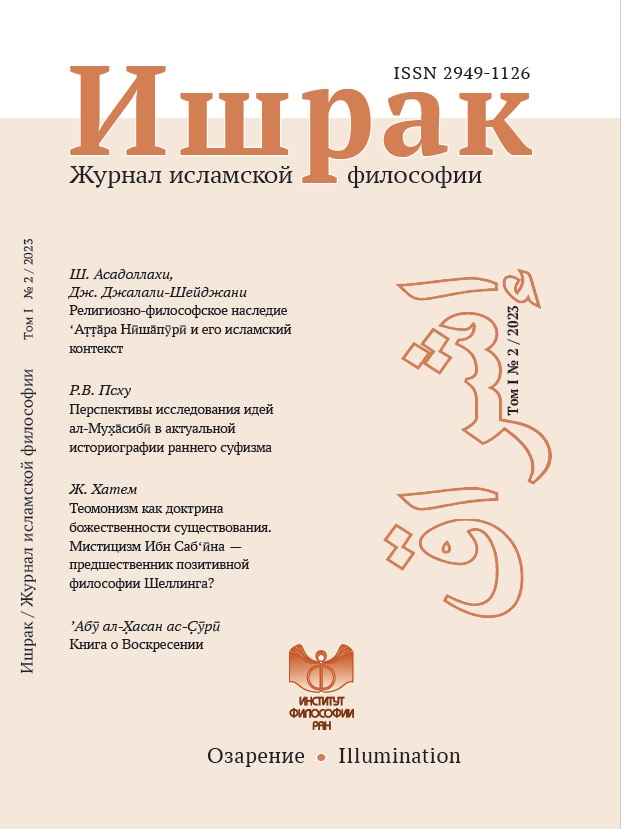Theomonism as a Doctrine of the Divinity of Existence. Is Ibn Sab‘īn’s Mysticism the Forerunner of Schelling’s Positive Philosophy?
Keywords:
Ibn Sabʻīn, Schelling, Sufism, Unity, Philosophy of Revelation, Religious Experience, Arab and Muslim ThoughtAbstract
The article is devoted to a comparative analysis of individual treatises of the Sufi thinker Ibn Sab‘īn (1217–1269) and Friedrich Wilhelm Joseph Schelling (1775–1854). The author discovers two independent types of “Abrahamic” theologemes — monotheistic and theomonistic. The monotheistic theology characterizes primitive beliefs and is constructed to assert the existence of a “supreme” deity. The theomonistic theology in turn, correlates with the mystical-philosophical intuition of being unity. As the scientist shows, both Ibn Sab‘īn and Schelling similarly refuse to conceptualize monotheistic paradigmatics, asserting the inexpressible existential basis of the universe behind the Absolute; the last one is the true basis of the unity and uniqueness, in which there is no real ontological space left for objects outside it. Separately, the concepts of Ibn Sab‘īn’s predecessors concerning the interpretation of the formula of Muslim monotheism are explicated.


